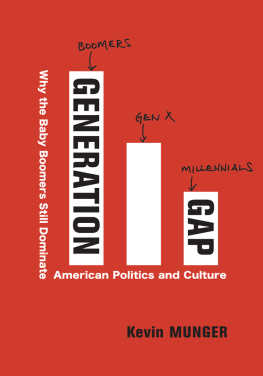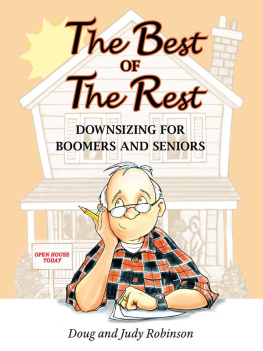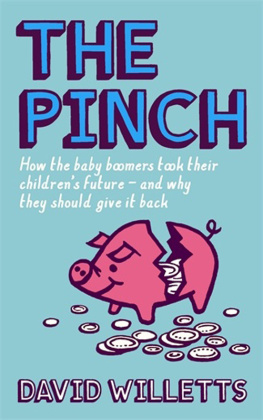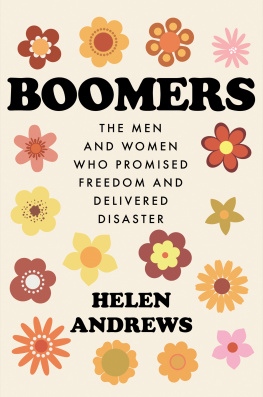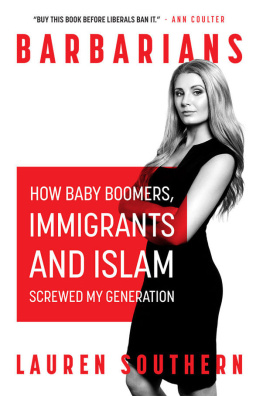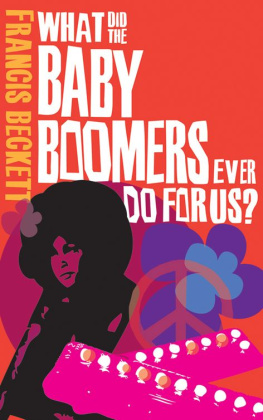
After Freedom
How Boomers Pursued Freedom, Questioned Virtue, and Still Search for Meaning
MARY VANDERGOOT
After Freedom
How Boomers Pursued Freedom, Questioned Virtue, and Still Search for Meaning
Copyright 2012 Mary VanderGoot. All rights reserved. Except for brief quotations in critical publications or reviews, no part of this book may be reproduced in any manner without prior written permission from the publisher. Write: Permissions, Wipf and Stock Publishers, 199 W. 8th Ave., Suite 3, Eugene, OR 97401.
Cascade Books
An Imprint of Wipf and Stock Publishers
199 W. 8th Ave., Suite 3
Eugene, OR 97401
www.wipfandstock.com
isbn 13: 978-1-62032-198-0
eisbn 13: 978-1-62189-377-6
Cataloguing-in-Publication data:
VanderGoot, Mary.
After Freedom : How Boomers Pursued Freedom, Questioned Virtue, and Still Search for Meaning / Mary VanderGoot.
x + 170 pp. ; 23 cm. Includes bibliographical references.
isbn 13: 978-1-62032-198-0
1. Baby boom generationUnited States. 2. Baby boom generationSocial aspectsUnited States. I. Title.
hn58 v1 2012
Manufactured in the U.S.A.
Cover image by Vandergoot Ezban Studio, used with permission.
For Two Andrews
Andrew Petter and Andrew Bender
My Father and My Grandson
They have taught me about the saga of the generations.
For everything there is a season,
And a time for every purpose under heaven.
Ecclesiastes 3
Pete Seeger and The Byrds
Acknowledgments
O n the day when I first sketched out a plan for this book I could not have imagined how many sources of inspiration I would discover along the way. Friends and acquaintances cheered me on by including an interesting link in emails or drawing my attention to something they had seen in the news. Some acquaintances I barely knew shared Boomer nostalgia with me once they discovered it was a topic I was researching. And my good friends asked often enough, but not too often, how my writing was coming along.
Friends in The Writing Group have read my essays (and sometimes my poetry) and offered feedback with keen pens and kind hearts. They understand the solitary labor of writing, but they also know how the process creates an energy all its own. Their willingness to share the adventure with me has been a great source of companionship. So to Edi, Barbara, Sylvia, Jane, Katy, Kristy, Carol, Otto, Heather, and Duane my sincerest thanks.
For several years I have been meeting regularly to read international fiction with a book club that has no official name. It is a circle of strong women, world travelers, seasoned professors, avid readers, and intellectuals with sterling credentials. What I treasure most about them is that over time they have become very good friends who offer me the sanctuary of a warm space in which to think about life and muse about what it means to grow older. Maryann, Barbara, Christiana, Johanna, Sally, and Helen represent for me a circle in which truth surfaces. For the gift of their company I am deeply grateful.
The Sunday morning Adult Education Hour at Forest Hills Presbyterian Church has offered me a lively place to think about and discuss big questions. It is a place where the questions matter as much as the answers, and where the need to ask the same questions many times over is honored. Those who have shared those golden hours with me know who they are, but probably they vastly underestimate how much their shared interest has inspired me. To each and every one of them I express my genuine appreciation.
To the readers who agreed to preview my work in various stages and offered me their honest comments and useful advice, my sincerest thanks. Luiza Ezban, Marianna Scholte, and Richard Plantinga read the manuscript in its earliest stages and offered me helpful advice by being candid about what did and did not speak to them. Others have read the manuscript as it grew, and still others have been helpful by reading it in bits and pieces. It takes a village to write a book, and the responsibility for choosing what actually goes on the pages sometimes seems weighty, but the encouragement of others has lightened that chore. Thank you so much.
To my parents who are no longer present as they once were, but who will always be present in my heart, I express my respect. To my children Sara and Dan, Jana and Mike, who have taught me a great deal about the limits of my own generation, and who shore up my hope for a future beyond the time I can imagine, I give my blessing. And finally to Henry who has been tireless in his encouragement for this project, who has discussed many of the ideas with me many times over, and who always manages to keep clear the difference between his ideas and mine, I can only begin to express how deeply grateful I am.
part one
Baby Boomer Dilemmas
How Did We Get So Socially Alienated
and Spiritually Lonely?
The Stories
I navigate life using stories where I find them,
and hold tight to the ones that tell me new kinds of truth.
Barbara Kingsolver
W e have already passed the fortieth anniversary of that time in the 1960 s during which young people, on the threshold of adulthood, took a stand against the mainstream culture and turned it in a new direction. Then we looked forward to what we thought we could make of our lives. Now we are in the very different position of looking back to see what came of it all.
In the 1990 s, when we judged the progress of the Boomer generation by the achievements it could claim, it appeared that the quest for freedom had been successful. There was at least some progress toward enlightened social goals, the inventions of technology had blossomed into a booming economy, and the end of the Cold War had reduced the risk of nuclear disaster. Or so we thought.
By the first decade of the new millennium, however, a shadow was cast over the optimism of the 1990 s. Hard on the heels of a time of great confidence we have entered a time of uncertainty. The world is confronted with the prospect of terrorism. We worry about the security of our government buildings, our food and water systems, and our mass transportation systems. Anxiety about the irrationality of nations with nuclear arms has resurfaced.
Along with these fears about what could happen, we have actual worries arising from what has happened already. An unstable stock market and shrinking pensions, rising unemployment rates, real estate foreclosures, and huge national debt cause worry about whether our future is secure. One war after another and the tragedy of those whose lives will be permanently altered by them make us wonder if we will ever have peace again.
What we once believed could only happen elsewhere is happening to us now, and we live with a daily feeling that something has to change. Time magazine ran a special report on the impact a changing economy has had on regular Americans; they are people like our neighbors, relatives, and friends. They are people like us. The article read: Sometimes we change because we want to: lose weight, go vegan, find God, get sober. But sometimes we change because we have no choice, and since this violates our manifest destiny to do as we please, it may take a while before we notice that those are often the changes we need to make most.


